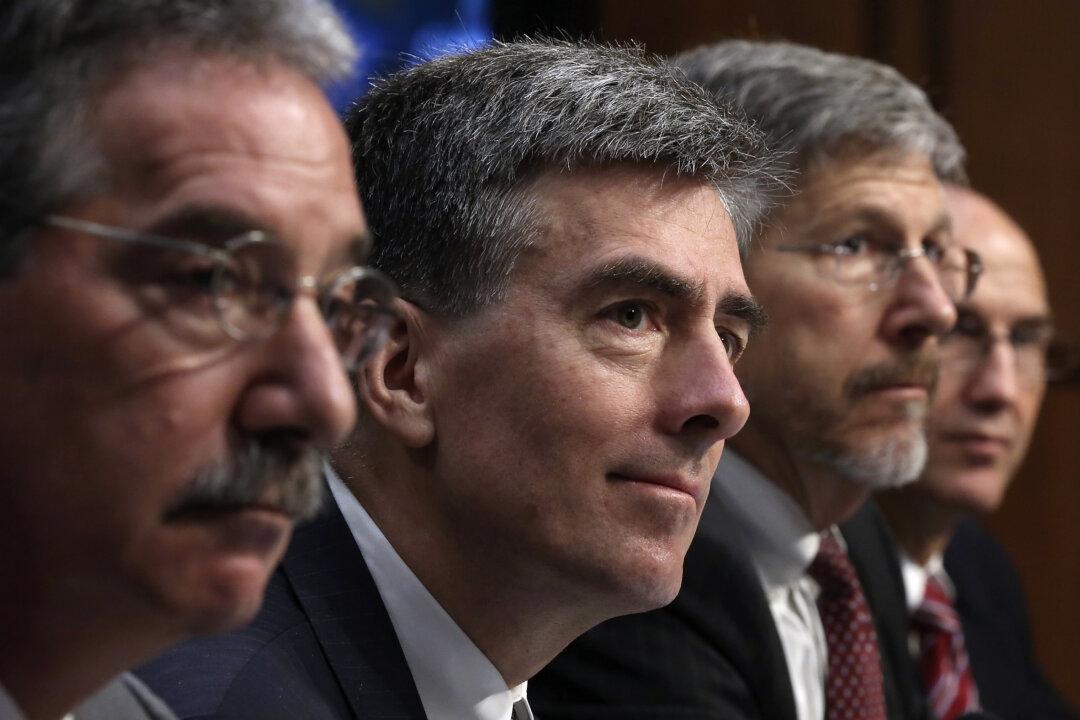WASHINGTON—As more information surfaced about the National Security Agency’s secret surveillance programs, members of the Senate Judiciary Committee searched for ways to curtail agency overreach.
Another leak from former NSA contractor Edward Snowden surfaced in The Guardian July 31. It was about a secret NSA program which allows analysts to trawl massive databases of emails, online chats and other Internet activity without prior authorization.
The program, titled XKeyscore, is described as the NSA’s “widest-reaching system” for gathering intelligence via the Internet.
Through the program, analysts can access the online communications of citizens without a Federal Intelligence Security Agency (FISA) warrant, “provided that some identifying information, such as their email or IP address, is known to the analyst,” The Guardian reported.
Sen. Patrick Leahy (D-Vt.), chair of the Senate Judiciary Committee, said he was concerned about potential damage from recent leaks but conceded that they had provided an opportunity for discussion.
“I appreciate that it is difficult to talk about classified programs in public settings, but the American people expect and deserve honest answers,” he said in his opening statement July 31.
The committee had just learned of another secret program, released from the Office of the Director of National Intelligence (ODNI) that morning. The program collects records on all domestic phone calls in the United States.
Senators questioned the NSA’s collection of domestic calls.
Witness John Inglis, the deputy director of the NSA, defended the practice. Gathering metadata on calls had been key in counter-terrorism efforts, he said. It provided information used in over 90 percent of the 54 disrupted terrorist attacks previously cited in public testimony.
Article Continues after the discussion. Vote and comment
[tok id=36be4f7fb67f5583d297e3f565b30184 partner=1966]
Deputy Attorney General James Cole said the metadata included only telephone numbers, plus the date, time and length of the call.
“The records do not include names or other personal identifying information, they do not include cell site or other location information, and they do not include the content of any phone calls,” he said.
Any further information could only be accessed via a court order which determined whether there was “reasonable, articulable suspicion,” he said.
Sen. Richard Durbin (D-Ill.) asked why the government needed to be responsible for metadata collection and why for five years.
Inglis said the agency needed records that far back. Telephone companies could also store the data, but the government would have to pay for the storage.
Changes To Court System
Sen. Dianne Feinstein (D-Calif.) supports the present system but said it needs review.
“Based on what I know, they will come after us and I think we need to prevent an attack from happening,” she said. “It doesn’t mean we can’t make some changes.”
Judge James Carr is a former member of the Foreign Intelligence Surveillance Court. He said there were times when he felt the need for an opposing view to make a decision. He suggested that adding an independent attorney in the court would serve the public well.
Sen. Richard Blumenthal (D-Conn.) embraced the idea. He will introduce legislation that would allow for an “adversary” in the FISC, and change both the operation of the secret court and the method by which its judges are selected.
Sen. Al Franken (D-Minn.) questioned the timing of the ODNI’s release of information that morning. It created the impression that government releases information only when it was convenient, he said. “ When it is ad hoc transparency, it doesn’t engender trust.”
Franken is proposing a bill that would require the government to reveal the number of Americans in its databases and to allow Internet companies more transparency about requests from intelligence agencies.
More Transparency
Views about the right balance between security versus privacy, and transparency versus secrecy differed between the legislative and executive branches.
Sheldon Whitehouse (D-R.I.) blamed recent security leaks, in part, on an overzealous executive branch.
“I hope this has an effect because this is a recurring problem. We really need to be balancing much more carefully the value of declassification against the value of classification and I think you guys are terribly one sided in favor of classification,” he said.
Cole agreed that a discussion was important but getting the balance right was complex.
“It is safer to over-classify than under-classify,” he said
Robert Litt, general counsel for ODNI said the public debate was “not without cost.”
“The information that has been leaked is going to damage our ability to protect the nation,” he said. He believed that getting the balance right had been traditionally the role of congressional committees.
Whitehouse cut him off. “We all get that. My point is the American public is an important part of this debate.”
He suggested agency time would be better spent finding ways to share information with the public rather than hiding it.




